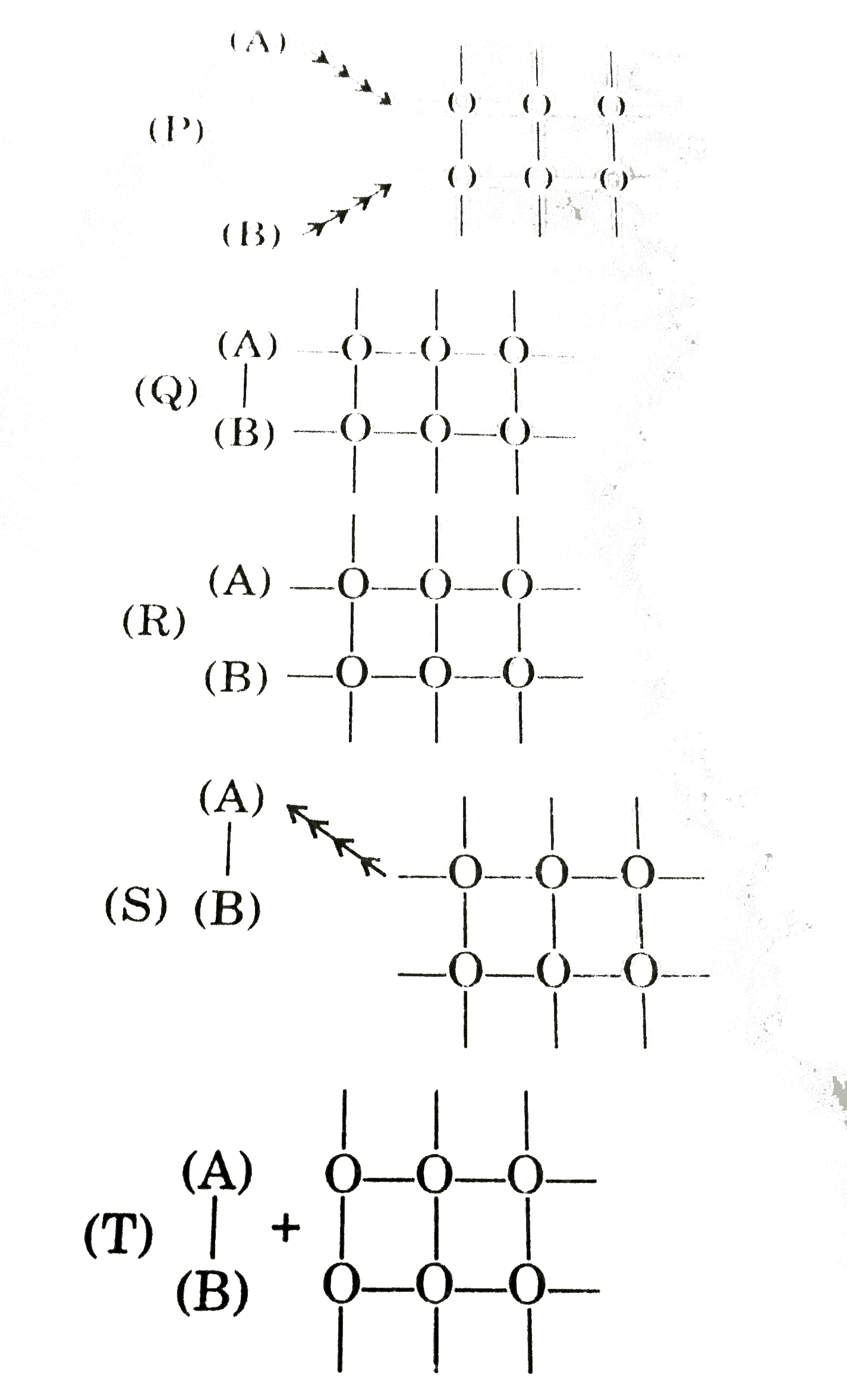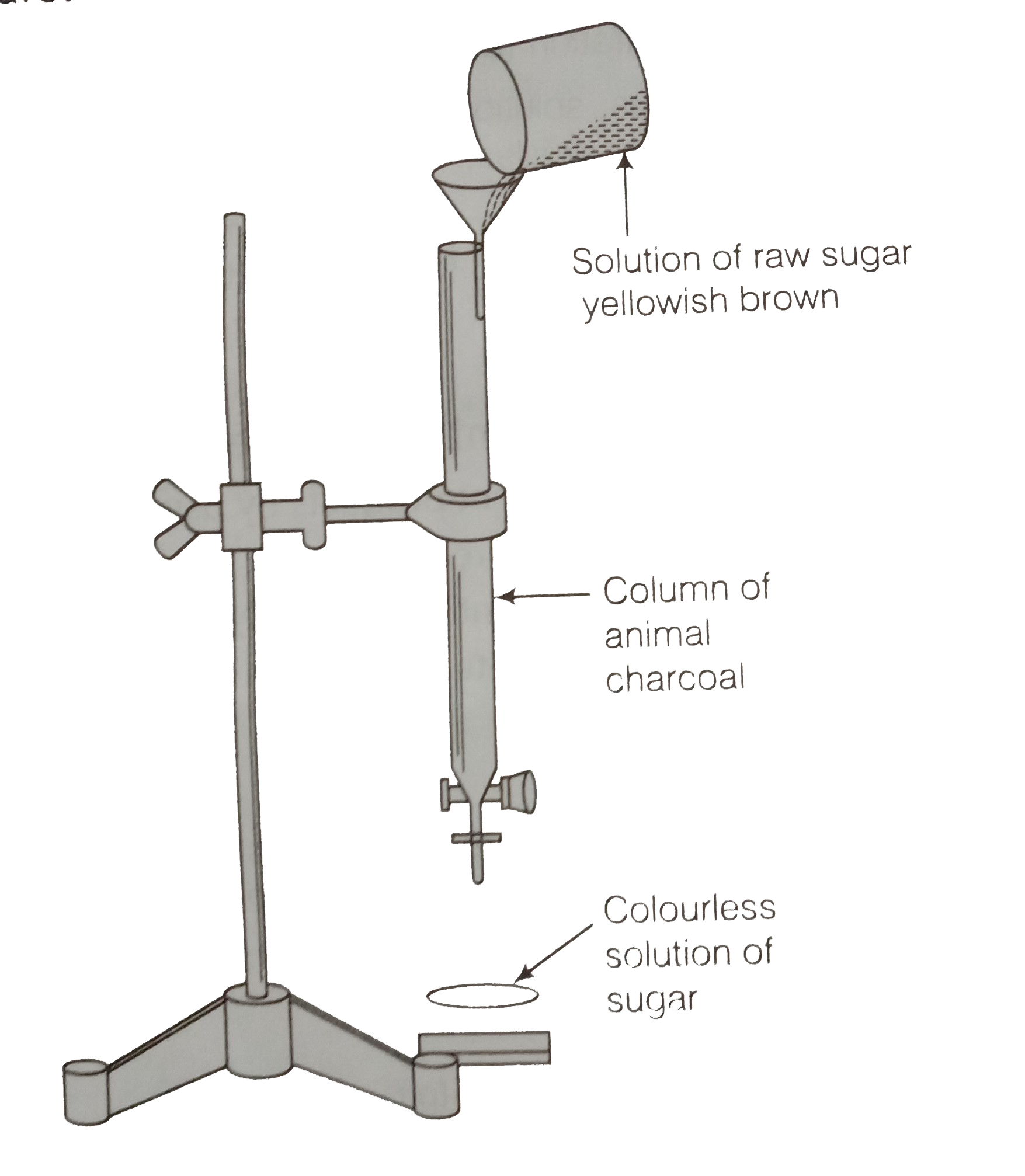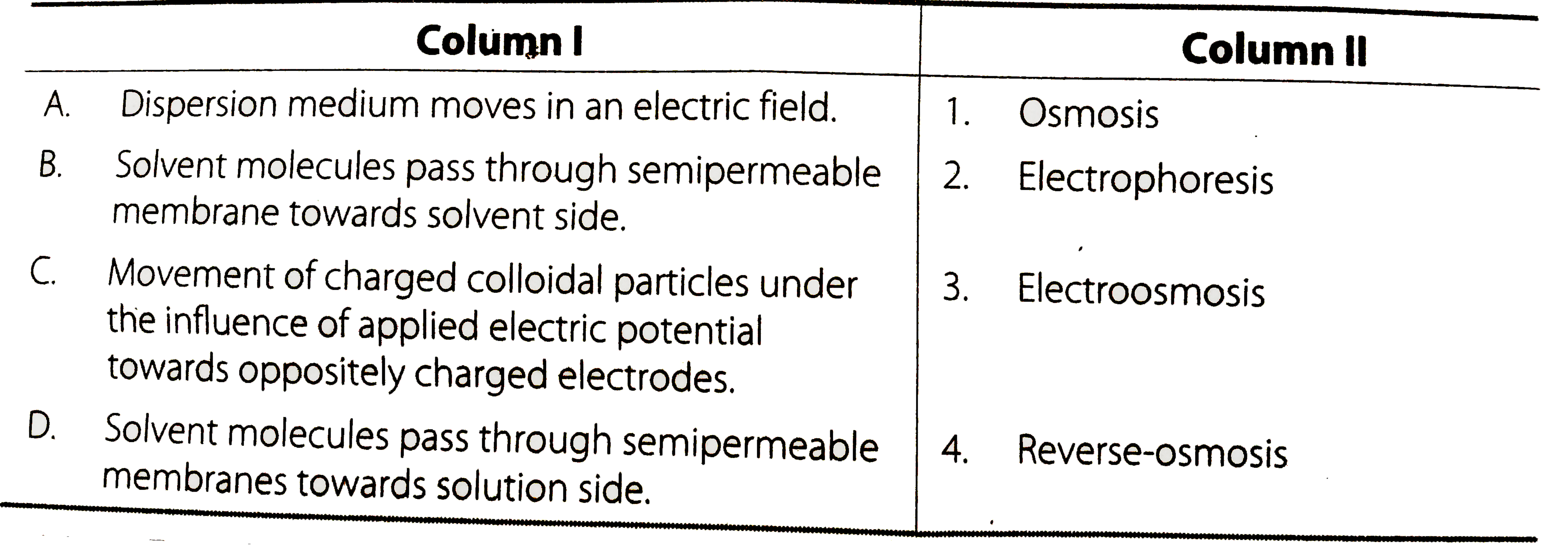Complete Solutions to Surface Chemistry of chapter SURFACE CHEMISTRY of Class 12 book with complete answers and questions
| Class 12 | CHEMISTRY |
| Chapter | SURFACE CHEMISTRY |
| NCERT EXEMPLAR | Surface Chemistry |
| Number Of Questions | 81 |
| Academic Year | 2023-24 |
Which of the folowing process does not occur at the interface of phases?
05:12View SolutionAt the equilibrium position in the process of adsorption …………
01:55View SolutionWhich of the following interface cannot be obtained?
01:53View SolutionThe term 'sorption' stands for ……… .
05:02View SolutionExtent of physisorption of a gas increases with ………. .
02:57View SolutionExtent of adsorption of adsorbate from solution phase increases with …… .
03:51View SolutionWhich one of the following is not applicable to the phenomenon of adsorption?
03:27View SolutionWhich is not correct for physical adsorption ?
03:09View SolutionPhysical adsorption of a gaseous species may change to chemical adsorption with
02:13View SolutionIn physisorption adsorbent does not show specificity for any particular gas because ……. .
03:57View SolutionWhich of the following is an example of absorption?
02:21View SolutionOn the basis fo data given below predict which of the following gases shows least adsorption on a definite amount of charcoal?
`{:("Gas" ,,CO_(2),,SO_(2),,CH_(4),,H_(2)),("Critical temp./K",,304,,630,,190,,33):}`01:41View SolutionIn which of the following reactions heterogeneous catalysis is involved?
(i) `2SO_(2)(g)+O_(2)(g) overset(NO(g))(to) 2SO_(3)(g)`
(ii) `2SO_(2)(g) overset(Pt(s))(to) 2SO_(3)(g)`
(iii) `N_(2)(g)+3H_(2)(g) overset(Fe(s))(to) 2NH_(3)(g)`
(iv) `CH_(3)COOCH_(3)(l)+H_(2)O(l) overset(HCl(l))(to)CH_(3)COOH(aq)+CH_(3)OH(aq)`01:28View SolutionAt high concentration of soap in water, soap behaves as …… .
01:37View SolutionWhich of the following will show Tyndall effect?
04:45View SolutionMethod by which lyophobic sol can be protected.
03:15View SolutionFreshly prepared precipitate sometimes gets converted to colloidal solution by ……. .
03:27View SolutionWhich of the following electrolytes will have maximum coagulating value for `Ag//Ag^(+)` sol?
01:33View SolutionA colloidal system having a solid substance as a dispersed phase and a liquid as a dispersion medium is classified as ……. .
01:23View SolutionThe values of colligative properties of colloidal solution are of small order in comparison to those shown by true solutions of same concentration because of colloidal particles …… .
02:51View SolutionArrange the following diagrams in correct sequence of steps involved in the mechanism of catalysis, in accordance with modern adsorption theory.
 07:38View Solution
07:38View SolutionWhich of the following process is responsible for the formation of delta at a place where rivers meet the sea?
01:50View SolutionWhich of the following curves is in according with Freundlich adsorption isotherm?
02:19View SolutionWhich of the following process is not responsible for the presence of electric charge on the sol particles?
01:41View SolutionWhich of the following phenomenon is applicable to the process shown in the figure?
 01:09View Solution
01:09View SolutionWhich of the following options are correct?
02:37View SolutionWhich of the following statements are correct about solid catalyst?
03:46View SolutionFreundlich adsorption isotherm is given by the expression `(x)/(m)=kp^((1)/(n))` Which of the following conclusions can be drawn from this expression?
03:31View Solution`H_(2)` gas is adsorbed on activated charcoal to a very little extent in comparison to easily liquefiable gases due to ……. .
06:34View SolutionWhich of the following statements are correct?
06:15View SolutionAn emulsion cannot be broken by ……….and …….. .
01:34View SolutionWhich of the following substances will precipitate the negatively charged emulsions ?
02:55View SolutionWhich of the following colloids cannot be coagulated easily?
06:55View SolutionWhat happens when a Lyophilic sol is added to a Lyophobic sol?
04:26View SolutionWhich phenomenon occurs when an electric field is applied to a colloidal solution and electrophoresis is prevented?
03:06View SolutionIn a reaction, catalyst changes ……… .
02:31View SolutionWhich of the following phenomenon occurs when a chalk stick is dipped in ink?
01:49View SolutionWhy is it important to have clean surface in surface studies ?
01:26View SolutionWhy is chemisorption referred to as activated adsorption?
01:53View SolutionWhat type of solutions are formed on dissolving different concentrations of soap in water ?
View SolutionWhat happens when gelatin is mixed with gold sol ?
01:24View SolutionHow does it become possible to cause artificial rain by spraying silver iodide on the clouds?
02:29View SolutionGelatin which is a peptide is added in ice-creams. What can be its role ?
02:43View SolutionWhat is collodion?
02:08View SolutionWhy do we add alum to purify water ?
01:46View SolutionWhich phenomenon occurs when an electric field is applied to a colloidal solution and electrophoresis is prevented?
03:06View SolutionWhat causes Brownian motion in colloidal dispersion?
03:43View SolutionA colloid is formed by adding `FeCl_(3)` in excess of hot water. What will happen if excess sodium chloride is added to this colloid?
02:59View SolutionHow do emulsifiers stabilise emulsion ? Name two emulsifiers.
04:13View SolutionWhy are some medicines more effective in the colloidal form?
01:31View SolutionWhy does leather get hardened after tanning?
01:37View SolutionHow does the precipitation of colloidal smoke take place in Cottrell precipitator?
01:50View SolutionHow will you distiguish between dispersed phase and dispersion medium in an emulsion ?
01:44View SolutionOn the basis of Hardy-schulze rule explain why the coagulating power of phosphate is higher than chloride ?
03:36View SolutionWhy does bleeding stop by rubbing moist alum?
01:00View SolutionWhy is `Fe(OH)_(3)` colloid positively charged when prepared by adding `FeCl_(3)` to hot water ?
01:37View SolutionWhy do physisorption and chermisorption behave differently with rise in temperature ?
01:40View SolutionWhat happens when dialysis is prolonged?
02:04View SolutionWhy does the white precipitate of silver halide become coloured in the presence of dye eosin?
01:28View SolutionWhat is the role of activated charcoal in gas mask used in coal mines?
01:08View SolutionHow does a delta form at the meeting place of sea and river water?
01:30View SolutionGiven an example where physisorption changes to chemisorption with rise in temperature. Explain the reason for change.
02:04View SolutionWhy is desorption important for a substance to act as good catalyst?
02:42View SolutionWhat is the role of diffusion in heterogeneous catalyst?
03:07View SolutionHow does a solid catalyst enhance the rate of combination of gaseous molecules?
03:24View SolutionDo the vital functions of the body such as digestion get affected during fever ? Explain your answer,
01:59View SolutionMethod of formation of solution is given in Column I. Match it with the type of solution given in Column II.
 02:40View Solution
02:40View SolutionMatch the statement given in Column I with the phenomenon given in Column II.
 02:03View Solution
02:03View SolutionMatch the items given in Column I and Column II.
`{:(,"Column I","Column II"),(A.,"Protective colloid",1.FeCl_(3)+NaOH),(B.,"Liquid-liquid colloid",2."Lyophilic colloids"),(C.,"Positively charged colloid",3."Emulsion"),(D.,"Negatively charged colloid",4.FeCl_(3)+"hot water"):}`02:09View SolutionMatch the types of colloidal systems given in Column I with the name given in Column II.
`{:(,"Column I","Column II"),(A.,"Solid in liquid",1."Foam"),(B.,"Liquid in solid ",2."Sol"),(C.,"Liquid in liquid ",3."Gel"),(D.,"Gas in liquid",4."Emulsion"):}`02:46View SolutionMatch the items of Column I and Column II.
`{:("Column I","Column II"),("A. Dialysis ","1. Cleansing action of soap "),("B. Peptisation ","2. Coagulation"),("C. Emulsification ","3. Colloidal sol formation "),("D. Electrophoresis ","4. Purification"):}`05:31View SolutionMatch the items of Column I and Column II.
`{:("Column I","Column II"),("A. Butter ","1. Dispersion of liquid in liquid "),("B. Pumice stone ","2. Dispersion of solid in liquid"),("C. Milk","3. Dispersion of gas in solid"),("D. Paints","4. Dispersion of liquid in solid"):}`03:06View SolutionAssertion (A) An ordinary filter paper impregnated with collodion solution stops the flow of colloidal particles.
Reason (R) Pore size of the filter paper becomes more than the size of colloidal particle.02:02View SolutionAssertion (A) Colloidal solution show colligative properties.
Reason (R) Colloidal particles are large in size.03:24View SolutionAssertion (A) Colloidal solutions do not show Brownian motion.
Reason (R) Brownian motion is responsible for stability of sols.03:12View SolutionAssertion (A) Coagulation power of `Al^(3+)` is more than `Na^(+)`.
Reason (R) Greater the valency of the flocculating ion added, greater is its power to cause precipitation (Hardy-Schulze rule) .03:56View SolutionAssertion (A) Detergents with low CMC are more economical to use.
Reason (R) Cleansing action of detergents involves the formation of micelles. These are formed when the cocentration of detergents becomes equal to CMC.04:19View SolutionWhat is the role of adsorption in heterogeneous catalysis?
05:02View SolutionWhat are the applications of adsorption in chemical analysis?
05:07View SolutionWhat is the role of adsorption in froth floatation process used especially for concentration of sulphide ores?
04:14View SolutionWhat do you understand by shape selective catalysis? Why are zeolites good shape selective catalysts?
05:05View Solution
Surface Chemistry questions and complete solutions for chapter SURFACE CHEMISTRY of CHEMISTRY of Class 12
